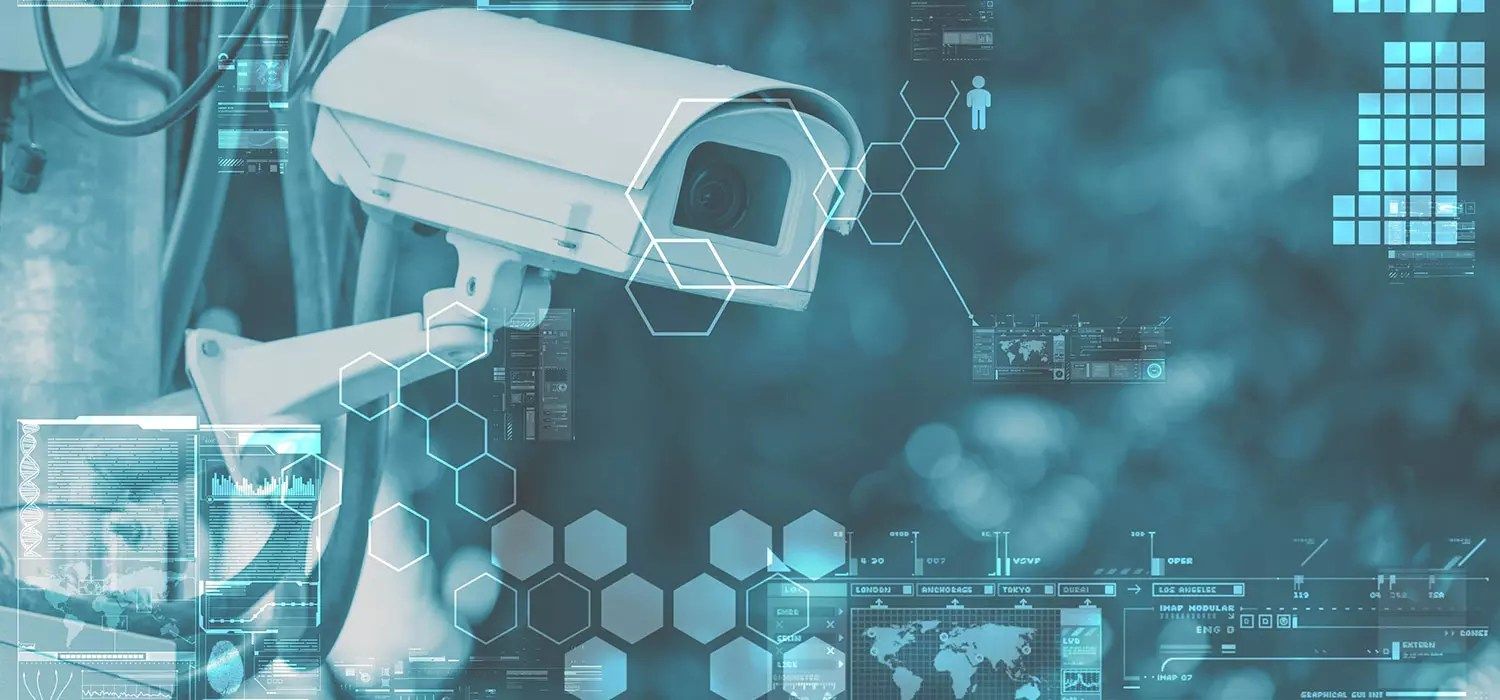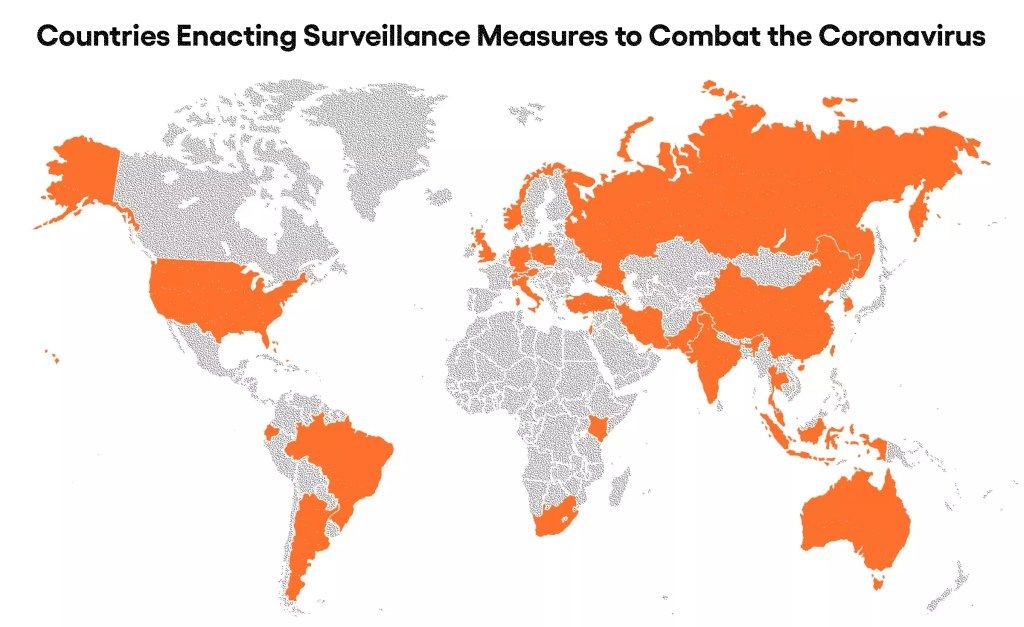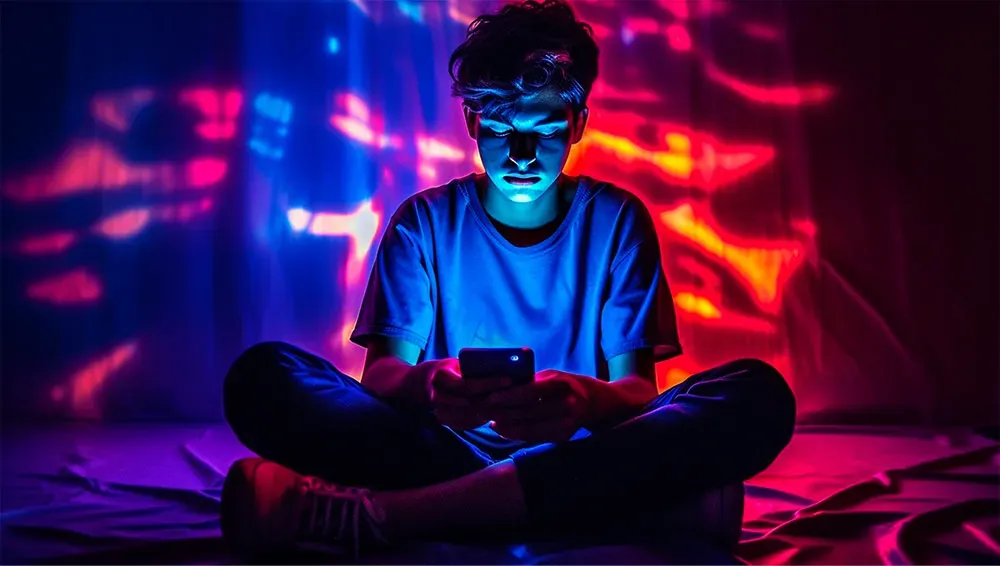Mass Hysteria Surrounds COVID-19 Tracking Apps, and We Are Sleepwalking to State Surveillance

The world is in crisis, and whenever a crisis occurs, drastic measures could be taken by those involved. In this particular case, the Coronavirus has the entire world in its grip and governments around the world are struggling to contain the health and economic effects of the virus.
The lockdown in place in most countries seems to be effective in limiting the spread of the virus. The same applies to social distancing measures now in place all around the world. The good thing about these measures is that they will disappear once the virus is gone, though it might take some time. Eventually, the lockdown will be lifted and, although we will experience the ‘1,5-meter economy’ for some time, that will be lifted as well.
However, in many countries around the world, new, unproven, measures are being considered or are already in place. I am talking about COVID-19 tracking apps that are being developed all around the world. The list of countries is growing rapidly:
- The Netherlands: a public call for help resulted in hundreds of companies offering their support in developing a Corona-tracking app. It is the objective of the government to get an app up and running within weeks;
- France and Germany: they joined the efforts of the Pan-European Privacy-Preserving Proximity Tracing (PEPP-PT) app currently under development;
- Turkey: actualised the Isolation Tracking Project (ITP) to track and warn the citizens who have been put under isolation;
- Spain: developed a new app that could be used to detect violators of lockdown rules;
- USA: Apple and Google joined the fight against COVID-19 and released apps and data to trace the virus spread. When did Google become an advocate of your privacy?
Tracking Apps Require Mass Adoption to Work
These are the countries developing a COVID-19 tracing app, but other countries have already implemented the app, with China, of course, being the most well-known example:
- China: if you want to go anywhere, you need to have a green coloured health code. This means that you have not been in contact with anyone that has the Coronavirus. The software is installed in WeChat and Alipay, and since almost all citizens have these apps, there is nearly complete coverage. This allows the Chinese government to dictate where its citizens can go, but apparently, the data is also shared with the police.
- Singapore: their TraceTogether app serves as an example for many countries. However, only 16% of Singaporeans installed the app, and therefore, Singapore decided to go into full lockdown for a month after all.
- South Korea: the country received international plaudits for containing the virus, but citizens are now getting tired of the constant messages from the apps. Routes taken by infected patients are shared online, and anyone who had been in close contact receives a warning.
In China and South Korea, the apps have been compulsory, while in Singapore, it was voluntarily. Not surprisingly, the results in Singapore have been limited, while in China and South Korea, the government managed to contain the spread of the virus. For tracking apps to be successful, a large part of the population should install them, and this is a problem.
In total, over 30 countries are developing COVID-19 tracing apps, according to OneZero:

Mass Surveillance Should Scare You
Only a few decades ago, we would not even accept a mobile phone as there was no necessity to be always on. Now, due to a crisis, we have no problems to completely set aside our privacy, without a clear understanding of the consequences. This is problematic and should scare you.
A tracking app to detect the spread of the virus cannot be anonymous, and if it is anonymous, it will be used for fraudulent and criminal purposes within no time. Hence, it cannot be anonymous. Let me explain.
The objective of many apps is to use Bluetooth. For it to work, your Bluetooth has to be always on and should be able to connect with other Bluetooth devices. Your phone will be anonymised using a number, which will be stored either centralised or decentralised using a blockchain.
When you are out and meeting or passing others, it records the anonymous IDs of those phones as well and links them to each other. If one person becomes infected, he or she should record that in the app and instantly, all those who are linked to the phone’s anonymous ID will receive a message and should start to self-isolate. By using Bluetooth, instead of location data, and anonymised IDs, the objective is to preserve your privacy. Unfortunately, it does not work like that as there are multiple problems with this approach:
- Bluetooth works through walls, so if your neighbour has become infected, without you seeing him/her, you should start to self-isolate as well;
- As a Dutch TV host, Arjen Lubach, noted: it becomes very simple to use this app for fraudulent or criminal actions. If you own a bakery or shop and someone who is infected enters your shop, you should self-isolate as using Bluetooth your phone and your visitor have been linked. However, if you give your phone then to someone else, or go yourself, and visit all your competitors, they should all close their business too. Even worse, if your friend is infected, you can take your friend’s phone and make sure that your competitors should close their business. The police cannot do anything about it, and if they could, the app won’t be anonymous anymore. This is a recipe for disaster.
- What about companies, can your boss require you to install the app and can this then be monitored? If so, it won’t be anonymous anymore.
- Can you travel with public transportation without the app and if you cannot, how will this be enforced? Do you have to turn your location data on (and become de-anonymised) or should controllers check all phones of everyone on the train?
Mass Hysteria Resulting in State Digitalism
There are a plethora of other questions that come up when we start to consider dangerous tracking apps such as these COVID-19 apps. For the app to be a success, it should be enforced that all citizens have the app, but to enforce the usage of the app, it cannot be anonymous. If it cannot be anonymous, it is a privacy disaster waiting to happen. Simply take a look at Singapore and China. In Singapore, enforcement did not work, and the country went in lockdown after all. In China, enforcement does work, but privacy is non-existent.
By accepting COVID-19 tracking apps into our lives, we are sleepwalking into mass surveillance. We will run towards State Digitalism, where the government is all-knowing about its citizens. This goes way beyond 1984 and should scare all of us. Especially, because measures taken during a crisis, tend to stay once the crisis is over. Once the government has become addicted to knowing all about its citizens, how will we ensure that the tracking apps are deleted?
Currently, these COVID-19 tracking apps are surrounded by mass hysteria. In The Netherlands, the Dutch government requires a tracking app to be designed, built and used within weeks, which is simply impossible if you wish to carefully consider all the privacy issues that surround these apps. Even worse, the success of these apps is not yet guaranteed, and the cure can become far worse than the disease.
If and when these COVID-19 tracking apps come on the market, I will not install it, and neither should you. Let’s protect our privacy because you can only lose it once.
Image: Vasin Lee/Shutterstock





